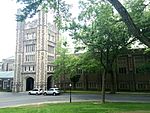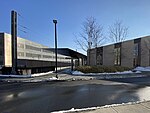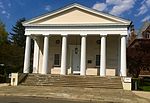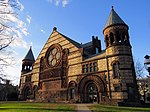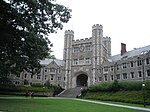McCarter Theatre

McCarter Theatre Center is a not-for-profit, professional company on the campus of Princeton University in Princeton, New Jersey, led by Artistic Director Sarah Rasmussen and Executive Director Martin Miller. Incorporated as an independent, charitable nonprofit since 1973, the company is a multi-disciplinary producing theatre and performing arts center offering theatre, music, dance, spoken word, and educational programs for all ages. A two-time Tony Award winner, the McCarter’s legacy traces back to the theatre’s first performances in 1930. Thornton Wilder’s Our Town, Kaufmann & Hart’s You Can't Take It With You, and William Inge’s Bus Stop all had their premieres on the McCarter stage. Among the 100,000 community members who directly participate in the company’s work every year, more than 6,000 are students taking part in McCarter’s arts-in-education offerings. The company offers more than 20 annual in-school residencies in classrooms in Princeton and Trenton, hosts schools from throughout the region for student matinee performances, and offers need-based scholarships to every one of its dozens of educational after-school and summer programs each year. It is a member company of the New Jersey Theatre Alliance.
Excerpt from the Wikipedia article McCarter Theatre (License: CC BY-SA 3.0, Authors, Images).McCarter Theatre
University Place,
Geographical coordinates (GPS) Address External links Nearby Places Show on map
Geographical coordinates (GPS)
| Latitude | Longitude |
|---|---|
| N 40.344308333333 ° | E -74.660702777778 ° |
Address
McCarter Theater Center
University Place 91
08540
New Jersey, United States
Open on Google Maps


